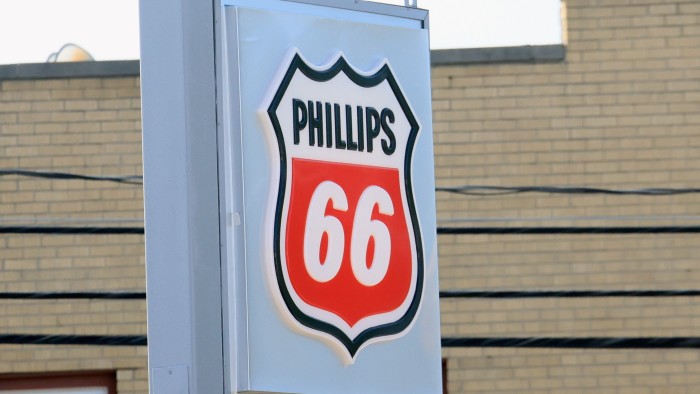Unlock the Editor’s Digest for free
Roula Khalaf, Editor of the FT, selects her favourite stories in this weekly newsletter.
Elliott Management won two seats on the board of oil refiner Phillips 66, after the activist hedge fund squared off in its first-ever proxy vote against a major US corporation.
Phillips 66 shareholders voted in favour of two Elliott-backed directors. Former ConocoPhillips executive Sigmund Cornelius and ex-Targa Resources executive Michael Heim were elected to the board, Elliott and Phillips 66 said in separate statements on Wednesday.
Current board director Bob Pease, who was previously backed by Elliott in an earlier settlement with Phillips 66 before the activist investor turned against him, and Nigel Hearne, the chief operating officer of Harbour Energy, were the Phillips 66 nominees added to the board, the company said.
The vote caps one of the most volatile and contentious activist campaigns in recent memory, in which Elliott more than doubled its stake to $2.5bn and pushed the oil refiner to sell assets, including its midstream business and chemicals joint venture, clean up its corporate governance and focus on its core competency of oil refining, in a bid to improve its performance compared with industry peers.
Funds controlled by passive money managers BlackRock, State Street and Vanguard Group — which collectively own about 23 per cent of the stock — as well as hedge fund T Rowe Price voted against Elliott, people familiar with the matter said. Retail investors represent about 25 per cent of the shareholder base.
The presence of just two Elliott-backed directors on the board could still lead to a strategy shift. The hedge fund said its two board directors “will work collaboratively with the incumbent directors to improve operational execution and share price performance, enhance corporate governance and help set a strategic course that can unlock Phillips 66’s full value-creation potential”.
Shares in Phillips 66 were down 6.8 per cent on Wednesday morning in New York, giving the oil refiner a market value of almost $46bn. Its shares are down 22 per cent over the past year.
On three occasions, Elliott campaigns have gone to the brink of a vote against a US company. The activist investor targeted oil and gas company Hess in 2013, industrials group Arconic in 2017 and Southwest Airlines in 2024: all of them settled at the eleventh hour.
The first indication that Elliott would probably go the distance against Phillips 66 came this month when influential proxy advisers Glass Lewis and then Institutional Shareholder Services recommended that their fund manager clients vote 3-1 and 4-0, respectively, in favour of Elliott’s slate of directors.
Up to Wednesday’s vote, there had been no contact between the activist heavyweight and Phillips 66 management since February. At the time, Elliott’s senior portfolio manager John Pike and one of his lieutenants outlined his demands to the company’s chief executive Mark Lashier, flanked by his advisers, in New York.
An Elliott proposal to remove Phillips 66’s staggered board election mode did not reach the 80 per cent threshold required to pass, the company said in a statement.
In the first hint of divestments, Phillips 66 last week announced the sale of a majority stake in its 970 Jet petrol stations across Germany and Austria to private equity groups Energy Equation Partners and Stonepeak for $1.6bn. Elliott argues Phillips 66 could generate about $40bn from selling its midstream business and non-core assets.
After first going public with its stake in Phillips 66 in 2023, the company brokered a peace with Elliott offering to put two independent directors on the board. But Phillips 66 only followed through by adding one director — Pease — who Elliott argued quickly became captive to Phillips 66’s management after he approved a move allowing Lashier to also become chair.



